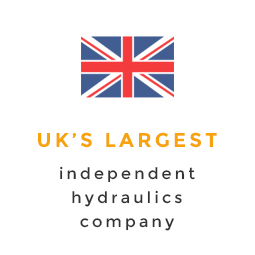Hydraulics: The Future of Hybrid Cars
With fuel emissions becoming a growing concern, car manufacturers have been looking to find more efficient ways to power vehicles in the last few years. Hybrid cars have been developed to help tackle this dilemma, and, in particular, the use of hydraulic systems is gaining momentum.

© romaset / Adobe Stock
Hybrid cars explained
A hybrid car is a vehicle that uses more than one power source, typically a petrol engine and an electric motor. Although there are different types of hybrid cars, in the most common form, the car gets most of its energy from the petrol, but the electric motor also produces electricity to power the car. It does this by converting kinetic energy with regenerative braking. This energy is retained to charge the battery, resulting in less fuel consumption.
Hybrid cars come with lots of benefits: they're more energy efficient than standard vehicles and they produce fewer fuel emissions, plus, there are tax incentives to be gained from owning this type of car, and if you drive in London, you may be exempt from paying the congestion charge.
Hydraulics uncovered
In order to improve efficiency even further and reduce reliance on batteries (which have their own environmental flaws), the use of hydraulic systems in hybrid vehicles has been gaining interest in recent times.
Although this technology is still in its infancy for use in standard cars, it's frequently found in large vehicles. Indeed, UPS converted its fleet to hybrid hydraulics back in 2005.
In fact, hydraulic systems are already widely used to power many everyday items, machines and equipment, including construction vehicles, fairground rides, dishwashers and even height-adjustable chairs.
Hydraulic hybrid vehicles work in a similar way to electric ones, in that they harness kinetic energy when a car brakes. While an electric system uses the energy to power its battery, the hydraulic system uses it in a different way: the energy powers a hydraulic pump, which then shifts fluid from a reservoir to an accumulator, where nitrogen gas is pressurised. When the car accelerates, this pressure is released as a form of energy to power the motor.
The beauty of hydraulic hybrid systems is that they're more energy efficient compared to their electric counterparts. Studies have shown that electric hybrids can harness 30% of energy during braking, but this rises to 70% for a hydraulic system. This is likely to be because hydraulic systems can store energy faster than electric ones, enabling them to snatch more energy during the braking process.
When UPS switched to hydraulic systems, it improved its fuel economy by 50-70%, compared to using petrol-only vehicles.
Additionally, hydraulic systems are low maintenance and lightweight, helping to boost fuel and cost savings. The pumps and storage tanks used in hydraulic hybrids are also cheaper compared to using batteries.
At the moment, most hydraulic hybrids are confined to large vehicles, especially ones that drive around towns and cities, in stop-and-start traffic. The systems are large and noisy, which means they currently have more appeal for use in bigger vehicles such as bin lorries, rather than standard cars.
Vehicles that travel most frequently on motorways, where stop-and-start traffic is less of a feature, may also fail to enjoy the maximum benefits from hydraulic hybrid systems. Plus, without a battery, a hydraulic system can't power electrical functions, such as air-con or radio, when the vehicle is at a standstill.
Although there are still some hurdles to overcome with regards to widespread adoption of hydraulic hybrid vehicles, the benefits of a reduced carbon footprint and increased energy efficiency are very attractive propositions. As technology advances and manufacturers develop smaller and lighter pumps and accumulators, it's only a matter of time before more and more people will be driving a hydraulic hybrid car.
With hydraulic systems providing a wide range of benefits to the automotive and other industries, why not contact Phoenix Hydraulics if you require professional hydraulic services?


